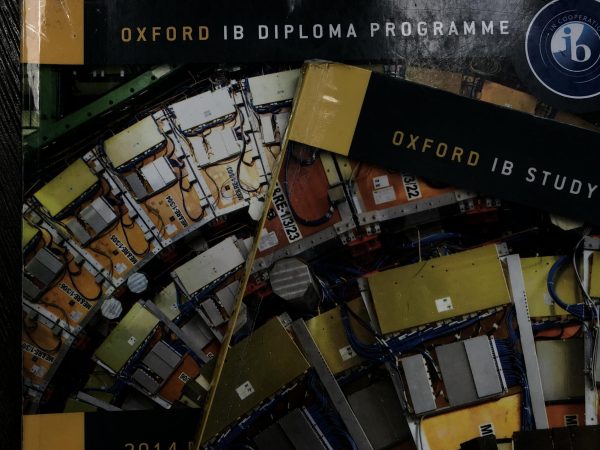Frosty the Snowman: Merry or Menacing? See If You Can Find Out Over All This Onomatopoeia!
Sure, we all know that “Baby It’s Cold Outside” is uncomfortable on the subject of consent, “Santa Claus is Coming to Town” implies that Santa is laying the groundwork for a surveillance state, and “Rudolph the Red Nosed Reindeer” features a differently abled character who is bullied until the system finds a way to exploit him. But these Christmas songs, mainstream in the sense of controversiality, are in no way the only ones to crack when placed under the magnifying glass. In this editorial we’re going to get up close and personal to five seemingly innocent Christmas songs, and prove they’re not so joyful and carefree when you really get down to it.
Let’s start with “Can You Hear What I Hear?” This song has all the right ingredients that, in perhaps another song or different format, would have some great potential, such as: stars! Shepherd boys! Rhetorical questions! But the condescending repetition of every line in the song is the dealbreaker. A more appropriate name for this song would perhaps be “I Assume You Cannot Hear Anything I Am Saying And So I Am Going To Repeat Everything Twice”. You’re forced to experience a slight embarrassment with every verse in the song: “Do you hear what I hear?” What? “DO YOU HEAR WHAT I HEAR?” Oh, yeah, I can hear it, yeah, I hear what you hear, sorry. Not to mention the awkward wording of some of the lines: “With a tail as big as a kite” A tail as big as a… what? “A TAIL AS BIG AS A KITE” and “A voice as big as the sea” A voice as big… as the sea? “A VOICE AS BIG AS THE SEA”. Another lyric where some issues arise: “A Child (a child) shivers in the cold, let us bring him silver and gold, let us bring him silver and gold”. If you see a child out in the cold, shivering, please do not prioritize bringing him precious metals. What he needs is a blanket.
Moving on to the frustratingly catchy “Santa Baby” (I’m not even going to address Michael Bublé’s version, “Santa Buddy”, because I think that one speaks for itself and has already received an appropriate amount of slander). This song makes me think a little, because as far as I understand it, Santa’s whole job premise is that he gives people presents for nothing. Yet the woman singing this song always seems to think that the only way she can receive Christmas presents is by seducing Santa, a much older, married man. So she’s either willingly compensating because she knows she’s asking for a metric ton of lavish gifts, or Santa is a complete scumbag lying about his job in order to get a girl (did I mention he’s already married, too?). I try not to focus on it too much, the song is much too catchy to be hung up on the technicalities.
Then we have “I Saw Mommy Kissing Santa Claus”. The motive for this song? Not quite sure. It could be one of several things: 1. The “Santa Baby” conundrum, where a. the mother thinks she has to seduce Santa in order to compensate for the amount of gifts she asked for, or b. Santa is lying about the payment for his services to score yet another girl (it seems his loyalty to Mrs. Claus is pretty questionable), 2. the mother in question is involved in a devoted affair with Santa where they only see each other once per year but are still committed, or 3. the Santa is simply the narrator’s father. I have issues with that last reasoning, however, because it took me way too long to think of it, and if that really was to be the true meaning of the song, it was badly executed– I had to run through all the undesirable options first before I finally arrived at that one. Also, if the kid is supposedly asleep why does the father feel the need to dress up so intricately as Santa that the kid literally believes it’s him? It’s too suspicious, and I think I have to eliminate Option 3 at this point. “I Saw Mommy Kissing Santa Claus” is now either about exploitation (of either party by either party) or adultery. Neither of these options are good.
Now let’s talk about “Frosty the Snowman”. This snowman is trying to lure children into the street! He has no regard for public safety! He essentially brainwashes the children into fulfilling his own selfish agenda with his tearjerking narrative. In order to get the full impact of this song, we need to also consider his misdeeds in the movie, so here’s a complete list of the crimes of Frosty the Snowman in the 25 minute duration of his crime documentary, in consecutive order:
- Steals a struggling magician’s hat and refuses to return it despite it not being his property
- Kidnaps several children under the guise of being their friend and coerces them into helping him
- Pushes said children into a life of crime by staging a parade through the town square that threatens the safety of numerous pedestrians by upsetting the traffic flow, essentially making them menaces to the general public
- Assaults a police officer by frightening/threatening him, inflicting lasting damage on said policeman’s vocal abilities due to his causing a whistle to get lodged in his throat
- Is unable to pirate or steal tickets for a train ride, so he unashamedly picks his favorite child to be his accomplice as he illegally stows away on the train
- Drags said child through the freezing wilderness for several hours only to abandon her with her crazed stalker in hot pursuit
And at the end, he “melts” to gain sympathy points with the audience, but is immediately revived by Santa Claus, who then goes on to reveal that since Frosty is made of Christmas snow he can never truly melt, exposing Frosty as a con man and proving that his whole agenda was merely an elaborate cover up for his crime addiction. At the end, the menace disembarks with an unnerving smile and a threatening “I’ll be back again someday”, suggesting that he is going to keep tabs on the children. Lastly, the song includes unnecessary onomatopoeia: “thumpity thump thump, thumpity thump thump…” What is Frosty’s means of locomotive that causes this to be the sound he makes? The implications of this specific sound are very frightening. Let’s not dwell on it.
And lastly, perhaps the worst holiday song of them all: “The Little Drummer Boy”. This song takes approximately 16 years to sing and does not rhyme. The concept: bad. The character: bad. The execution: bad. There is not even an actual drum in the song. There’s a lot to unpack here, so to start off, here are the cold hard facts of “The Little Drummer Boy” straight from the source:
Come, they told me (Pa rum pum pum pum)
A new born king to see (Pa rum pum pum pum)
Our finest gifts we bring (Pa rum pum pum pum)
To lay before the king (Pa rum pum pum pum, Rum pum pum pum, Rum pum pum pum)
So to honor him (Pa rum pum pum pum)
When we come. (Pum pum pum pum Pa rum pum pum Pum pum pum pum Pa rum pum pum Pum pum pum pum Pa rum pum pum Pum pum pum pum pa rum.)
Annoyed yet? Seems that there’s a lot of drum onomatopoeia that maybe, just maybe, could have instead been executed by using an actual drum. This would also allow us to actually judge the little drummer boy’s proficiency in the music department, because so far he’s been all talk and no drum– or rather, all “rum pum pum pum” and no drum. Next, we need to look at the actual story the little drummer boy is telling us, which is pretty difficult to decipher when listening to this song due to his insistence on prolonging the story with his bad sound effects. But basically, this little drummer boy is invited to the baby shower of the newborn king, and is explicitly instructed to bring his finest gift to lay before said king. An honor, one might say. Not the kind of thing you want to forget to get a gift for, one might say.
Little baby (Pa rum pum pum pum)
I am a poor boy too (Pa rum pum pum pum)
Pro Tip: to make a strong impression on your audience, use shock value and greet the newborn Messiah with a casual “little baby”. And no one bats an eye when he compares himself to Baby King by calling them both poor? Okay.
I have no gift to bring (Pa rum pum pum pum)
That’s fit to give our king (Pa rum pum pum pum, Rum pum pum pum, Rum pum pum pum)
So he showed up at the party without a gift. Fine. He’s right, he has nothing to give the baby that will be good, because as he so eloquently pointed out before, he is poor.
Shall I play for you? (Pa rum pum pum pum Pa rum pum pum Pum pum pum pum)
Here’s where the little drummer boy’s devious hidden agenda reveals itself. Just in case it wasn’t obvious: drum solos are not appropriate gifts for newborn babies. “Loud Noises Under The Guise of My Supposed Talent” would not have flown at any other Give Baby Gifts party. You would have been hit with threatening smiles and a forceful eviction from the party.
Mary nodded (Pa rum pum pum pum)
Mary forces herself to be polite and lets him proceed. This nonverbal go-ahead definitely shows misgivings.
The ox and lamb kept time (Pa rum pum pum pum)
Let’s add some more loud noises into the mix! I wasn’t aware the oxen and lambs were musically inclined, but good for them. Calls into question the little drummer boy’s skill level, he apparently can’t keep time for himself even though one of a drummer’s main purposes is to keep the tempo steady.
I played my drum for him (Pa rum pum pum pum)
I played my best for him (Pa rum pum pum pum, Rum pum pum pum, Rum pum pum pum)
Then he smiled at me (Pa rum pum pum pum)
Me and my drum
Me and my drum
Me and my drum
Me and my drum
Me and my drum (Rum pum pum pum)
We heard you, little drummer boy. So, just in case you missed anything, “The Little Drummer Boy” is a song where the narrator tells you about the time he forgot to mark the baby shower of the Messiah on his Google Calendar, subsequently forgot a gift, confidently rolled up to the party anyway with an excuse ready and proceeded to make loud noises with his trusty drum in front of a BABY, agitated the animals enough that they learned music theory, and was a general nuisance that self-promoted his drum skills at a party meant for someone else. Essentially, he tells the story of that time he played a (supposedly) sick drum solo in a completely inappropriate context. And we never find out if he’s actually a good drummer or not– subscribe to Little Drummer Boy Premium to upgrade your verbal “rum pum pum pum”s to actual drum sounds!
The list of questionable Christmas songs could go on and on. I’ve got issues with “Up On The Housetop”, “The Twelve Days of Christmas” (obviously), “Have a Holly Jolly Christmas”, “All I Want for Christmas is my Two Front Teeth”, and so many more– in my opinion, only Dean Martin Christmas song renditions made it out with their dignity. But at this point, I want to personally apologize to you, the reader, because now that I’ve made you read through the various reasons why Frosty is actually a criminal and the little drummer boy is a self-promoting jerk, these songs might not be the same to you anymore. But, really, as fun as it is to tear apart these songs, these opinions on Christmas music shouldn’t influence the way you hear the music. As WMC senior Gabriella Nowak so eloquently put it, “Christmas music holds memories of our childhoods and the happy Christmases we spent with our families”. When we’re kids, we don’t listen to the words, we listen to the song. And when we let go of our focus on individual things like the words of these songs, we hear them wholly, like we did as children, and we can relive the happy memories and time spent with those we love at Christmastime.

Julia is currently a senior at West Morris Central and a staff writer for The Paw. She plays violin in the WMC Symphony, participates in Cross Country...












